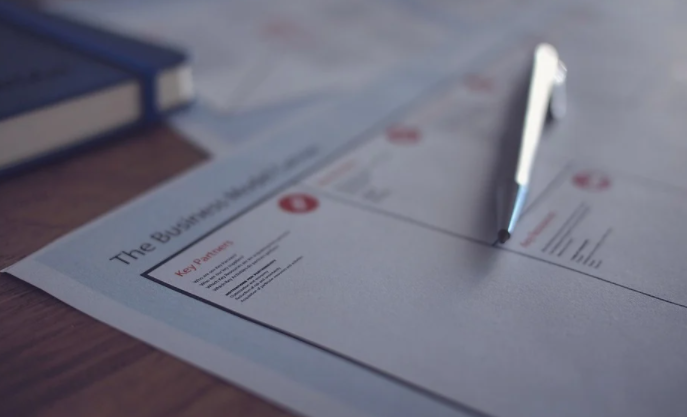Tips When Starting a Freelance Business
Are you ready to take charge of your career and be your own boss? Starting a freelance business can open up a world of opportunities and give you the flexibility to work on projects that truly ignite your passion. If you already started one, you should know that your business deserves to look more professional. So, take the time to research on how you can do it. This way, you will have more clients. Below are tips when starting a freelance business.
Define Your Niche
When starting a freelance business, one of the first steps is to define your niche. This means identifying the specific area or industry in which you want to specialize and offer your services. Finding your niche is crucial for several reasons. It allows you to focus your efforts and become an expert in a particular field. You can tailor your skills and offerings to meet their specific needs by narrowing down your target market. Defining your niche helps differentiate yourself from competitors. Instead of being a jack-of-all-trades freelancer, positioning yourself as an expert in a particular area gives potential clients confidence that you have the knowledge and experience they want.
Set Clear Goals
 Setting clear goals is crucial when starting a freelance business. Without them, you may feel lost and unsure of what steps to take next. You can stay focused and motivated by defining your goals from the start. It’s important to establish both short-term and long-term goals. Short-term goals help keep you on track daily, while long-term goals provide direction for your business’s direction. Make sure your goals are specific and measurable. Vague or generalized goals won’t give you a clear target to aim for. Instead, break down your larger objectives into smaller, actionable tasks that can be easily monitored and evaluated.
Setting clear goals is crucial when starting a freelance business. Without them, you may feel lost and unsure of what steps to take next. You can stay focused and motivated by defining your goals from the start. It’s important to establish both short-term and long-term goals. Short-term goals help keep you on track daily, while long-term goals provide direction for your business’s direction. Make sure your goals are specific and measurable. Vague or generalized goals won’t give you a clear target to aim for. Instead, break down your larger objectives into smaller, actionable tasks that can be easily monitored and evaluated.
Build Your Portfolio
Building a strong portfolio is one of the most important aspects of starting a freelance business. Your portfolio serves as your calling card, showcasing your skills and expertise to potential clients. It’s not just about having a collection of work samples but also about presenting them in an organized and visually appealing manner. When building your portfolio, you must showcase various projects that highlight different aspects of your skill set. This will demonstrate your versatility and ability to handle various types of work. Be selective in choosing which projects to include in your portfolio – focus on quality rather than quantity.

Establish a Professional Brand
When starting a freelance business, it’s crucial to establish a professional brand that sets you apart from the competition. Your brand is what differentiates you and creates trust with potential clients. Here are some tips for building your professional brand:
- Define Your Unique Value Proposition: Identify what makes you unique and communicate that clearly to your target audience. Highlight your skills, experience, and the value you bring to the table.
- Consistent Visual Identity: Develop a consistent visual identity by creating a logo, choosing color schemes, and selecting fonts that align with your brand personality. Use these elements consistently across all of your marketing materials.
- Craft a Powerful Elevator Pitch: Create a concise and compelling elevator pitch that communicates who you are, what services or products you offer, and why someone should choose you over others in the market.
- Build an Online Presence: Establishing an online presence is essential in today’s digital world. Create a professional website showcasing your portfolio, testimonials from satisfied clients, and contact information.
By following these tips when establishing your professional brand as a freelancer, you can position yourself as an expert in your field while attracting more high-quality clients who recognize the value of working with you.
Conclusion
As with any new endeavor, starting a freelance business requires dedication, patience, and continuous learning. Embrace challenges along the way as opportunities for growth while staying true to yourself and offering exceptional value to clients. So go ahead – take that leap into freelancing! With these tips in mind, you’re well-equipped to make your mark in the world of freelancers. Good luck.


 While it’s great to assume that people are honest and kind, contracts are still necessary for freelancers. At a very basic level, they generate a binding agreement on how much you will likely be paid for the work and the terms of the way you work on that type of project. This is where we can get into a lot of different technicalities and legal terms. Anyone who had made a significant purchase like a car or a house can attest to how complicated and confusing a contract can be.
While it’s great to assume that people are honest and kind, contracts are still necessary for freelancers. At a very basic level, they generate a binding agreement on how much you will likely be paid for the work and the terms of the way you work on that type of project. This is where we can get into a lot of different technicalities and legal terms. Anyone who had made a significant purchase like a car or a house can attest to how complicated and confusing a contract can be. One of the significant challenges of working on multiple assignments is evaluating all the little details as you move from one task to the next. A busy mind can more easily forget things that are extremely valuable to the completion of a project. If you want to start small, put them in a text editor.
One of the significant challenges of working on multiple assignments is evaluating all the little details as you move from one task to the next. A busy mind can more easily forget things that are extremely valuable to the completion of a project. If you want to start small, put them in a text editor.